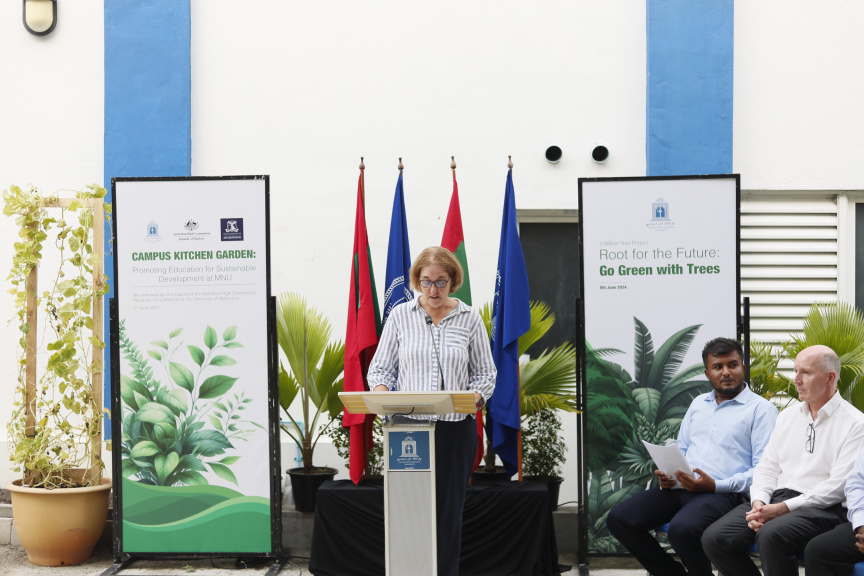
MNU Launches Sustainable Campus Kitchen Garden
Maldives National University (MNU) has launched a campus kitchen garden to promote sustainability and provide educational opportunities for its students. Supported by the Australian High Commission in the Maldives and the University of Melbourne, Australia, this initiative aims to foster sustainable outcomes and reconnect individuals with the sources of their food.
The inauguration ceremony took place on June 5th, with Abdul Rahman Mubaariqiue, Deputy Vice Chancellor of Administration and Finance at MNU, delivering opening remarks and a vote of thanks. The event was graced by the Australian High Commissioner to the Maldives, David Jessup, who ceremoniously planted the first seed and provided a gardening kit to facilitate the project's ongoing activities.
Dr. Rhonda Di Biase, a visiting scholar from the University of Melbourne, contributed practical ideas focused on sustainable practices relevant to the Maldivian context, further supporting the project.
The MNU campus kitchen garden project aims to provide both curricular and co-curricular opportunities for students, enhancing their understanding of food production and sustainable practices. The garden beds were constructed using existing materials such as bricks, ensuring a quick and easy build.
At the inauguration ceremony, various items, including pumpkin, basil, chili, and cucumber, were planted in the garden beds. This initiative also serves the Faculty of Hospitality and Tourism’s cooking classes by providing a fresh supply of produce, reducing dependency on imported food items.
In addition to growing fresh produce, the project has established a composting system to handle food scraps from the Faculty of Hospitality and Tourism’s kitchen. Local NGO Live and Learn is providing training to students on effective composting strategies suitable for the Maldives. This composting system aims to address food waste issues by reducing landfill waste and providing nourishment for the kitchen garden.
The MNU kitchen garden initiative is a significant step towards sustainability, with plans to expand the project across other MNU campuses and faculties. This project not only enhances the university’s sustainability efforts but also provides practical learning experiences for students, promoting a deeper understanding of food production and environmental stewardship.